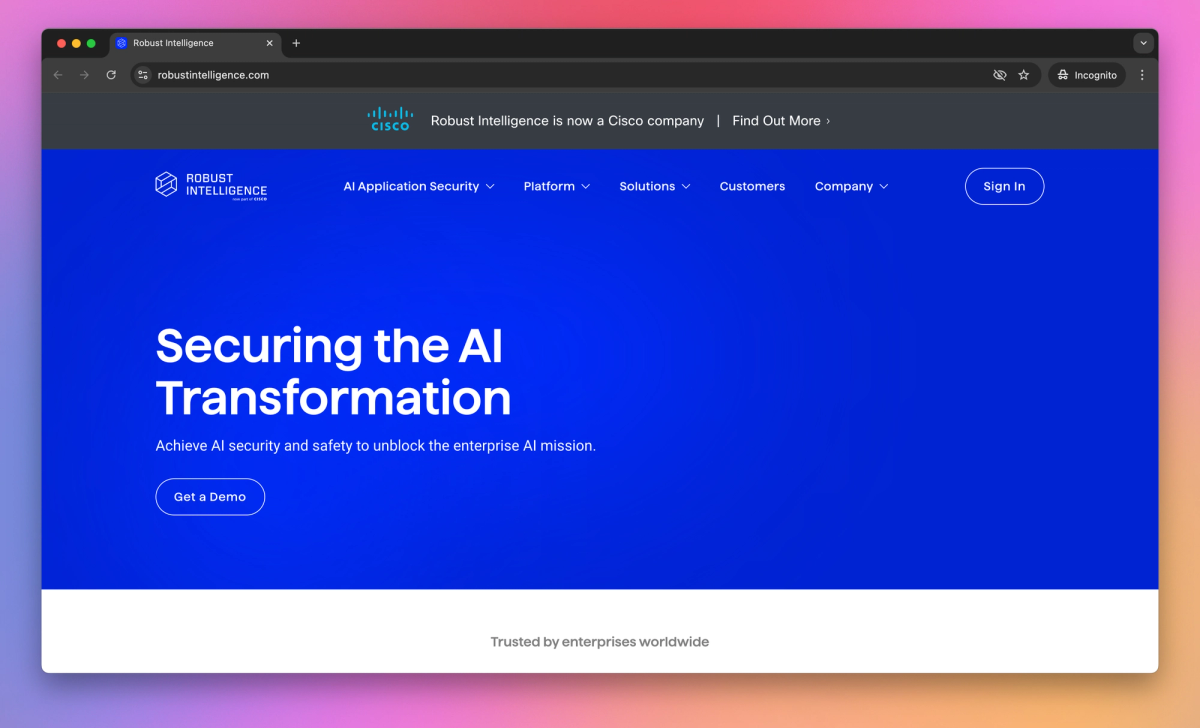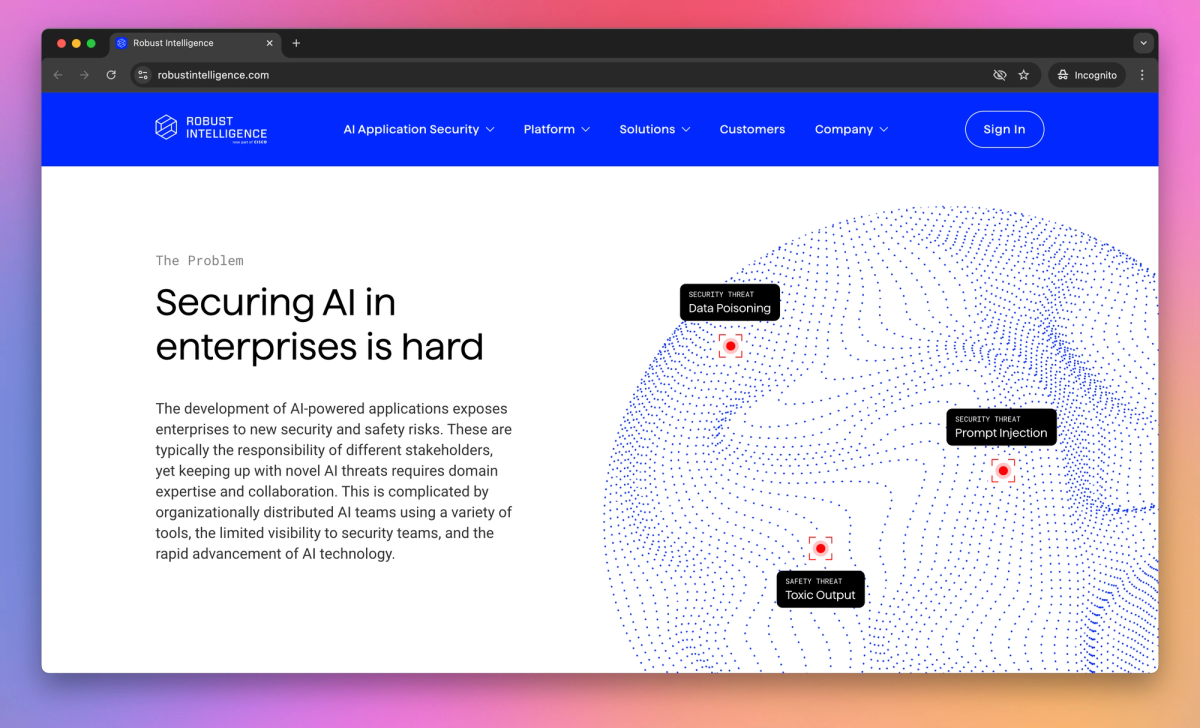

What is Robust Intelligence?
Robust Intelligence provides AI application security, protecting against threats like prompt injection and data poisoning through automated testing and real-time safeguards. It allows AI developers and security teams to identify vulnerabilities in machine learning models and intercept malicious inputs in production, preventing sensitive data leaks or toxic chatbot responses.
What sets Robust Intelligence apart?
Robust Intelligence sets itself apart by combining algorithmic red teaming with an AI threat intelligence pipeline, allowing companies to proactively uncover novel AI vulnerabilities. This approach gives security professionals the ability to identify potential exploits like jailbreaks or data leakage before bad actors can take advantage of them. Robust Intelligence proves invaluable for organizations aiming to deploy AI applications without compromising on safety or regulatory compliance.
Robust Intelligence Use Cases
- AI model security testing
- Protect AI applications
- Detect AI vulnerabilities
- AI risk management
Who uses Robust Intelligence?
Features and Benefits
- Automatically test AI models for security and safety vulnerabilities through algorithmic red teaming, providing recommended guardrails for safe deployment.
AI Validation
- Secure AI applications in real-time with AI Firewall guardrails that detect and mitigate threats based on vulnerabilities identified during model assessment.
AI Protection
- Address a wide range of AI security and safety risks including prompt injection, jailbreaking, toxicity, bias, and data leakage across the AI lifecycle.
Comprehensive Threat Coverage
- Map testing and protection to industry standards like OWASP Top 10 for LLM Applications, MITRE ATLAS, and NIST guidelines to streamline regulatory compliance.
Standards Compliance
- Integrate AI security measures into existing workflows through API-based services, SDK options, and connections with popular AI platforms and security tools.
Seamless Integration








